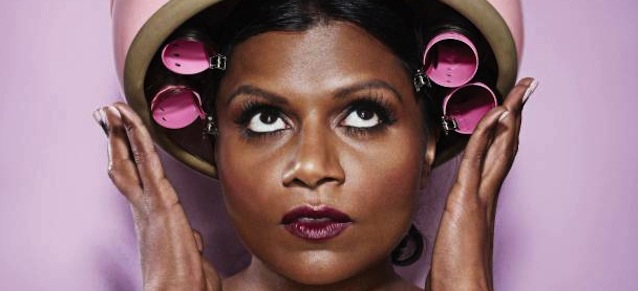
In The NY Times Magazine a couple of weeks ago, Carina Chocano launched another one of her missiles of insight, this time at the double standards about age for men and women in a column entitled “Girls Love Math. We Never Stop Doing It.” Her jumping off points being the pilot of Mindy Kaling’s new show, The Mindy Project (in which a 31-year old Mindy expresses more than a little angst about being ‘over the hill’, marriage-potential-wise), and a recent debate about the guidelines for runway models, i.e. that they must be at least 16 years old. But as worthy a topic as gender inequity in the media is, Chocano goes further than most such articles, locating the Law behind the law, as it were. I was particularly struck by her comments about what constitutes the “prime of life”. Biological concerns notwithstanding, that phrase has always struck me as one that is positively soaked in righteousness (for both sexes) and almost exclusively condemnatory, at least in the way it’s heard–no one knows when exactly their prime is, they just know they either haven’t quite reached it or just missed it. “An ontological bind” as she so eloquently puts it, and a pretty uncanny, if admittedly more arbitrary stand-in for what we mean when we talk about the law. So lest anyone think they’ve escaped impossible standards of judgment by sleeping in on Sunday, look no further than Miss Kaling, who’s made a pretty delightful career thus far out of playing these double standards for laughs (very much in the self-deprecating Liz Lemon vein, but perhaps a tad more convincing in how she recognizes her own complicity). Lord have mercy:
Not long ago, I watched the pilot episode of “The Mindy Project,” a comedy about a freshly minted obstetrician whose basic human value is called into question by her failure to have married someone — anyone — by her implied, if unstated, deadline. In one scene, Kaling, who is 33 in real life (and playing 31), goes on a blind date with a guy played by Ed Helms, who is 38 (and playing no one cares), when they are interrupted by an urgent phone call from the son of one of her patients. Annoyed at having to take the call, she grabs the phone from the hostess and hisses, “Do you know how difficult it is for a chubby 31-year-old woman to go on a legit date with a guy who majored in economics at Duke?”
…the tragic, grotesque, totally unfair and yet unassailable ephemerality of a woman’s so-called prime is a trope we privilege over any evidence to the contrary. We expect women to submit to its incontrovertible veracity with equanimity and shame, and we expect men to be gracious about it and try not to gloat. Mostly, we expect nobody to notice or question the different ways in which “primeness” is constructed for each sex, which is not based on the same criteria at all. If, as Hegel suggested, ideas are not just ideas but come wrapped in all flavor of attitudes, then this particular idea is a giant, Gorgonzola-stuffed, bacon-wrapped fig of a notion: decadent, cloying, aged, cured in centuries of spin, warmed over and passed around again and again…
[youtube=https://www.youtube.com/watch?v=UQmHHttYX0U&w=540]
Pairing pictures of adolescent girls with adult men, or of young women with middle-aged men, to suggest age parity produces cognitive dissonance on a mass scale. So does constantly reinforcing the idea that a 33-year-old woman like Kaling is somehow “older” than a man who is seven years older than she. By locating the aspirational ideal squarely in the past of nearly everyone who consumes it, it puts almost all women and most girls in an ontological double bind from which nobody emerges unscathed. The most insidious thing about it, however, is that it promotes a false equivalence between youth and worth, between adolescence and adulthood. As one commenter on the Room for Debate series wrote: “Looking at children as examples of my adulthood feels wrong.”…
For years, I worried that I would be dismissed for being too young right up until the moment when I started being dismissed for being too old. That means I spent a disproportionate piece of my 20s and 30s thinking it was all over. I remember crying to a male friend that my time was running out; that I didn’t think I would be able to squeeze it all in before my built-in expiration date. I was 24. Meanwhile, my 23-year-old roommate would languish on the couch wailing, “I feel like a piece of fruit rotting on the vine!” I look back at this now — at how bad, how ashamed I felt for letting myself turn 29 — and I can’t believe how much of my youth I squandered on feeling old.
For anyone interested in the precise contours of this issue–at their most extreme and revealing–the recent HBO documentary About Face is must-see viewing:
[youtube=https://www.youtube.com/watch?v=IPswNHqHy7s&w=600]

COMMENTS
One response to “Over the Hill and Under the Law: Girls, Math and the “Prime” of Life”
Leave a Reply













If this has been posted on mbird before, I apologize, but it’s too perfect not to include on this particular post. Note blue language in parts.
http://www.youtube.com/watch?v=H-gfxjAaZg0